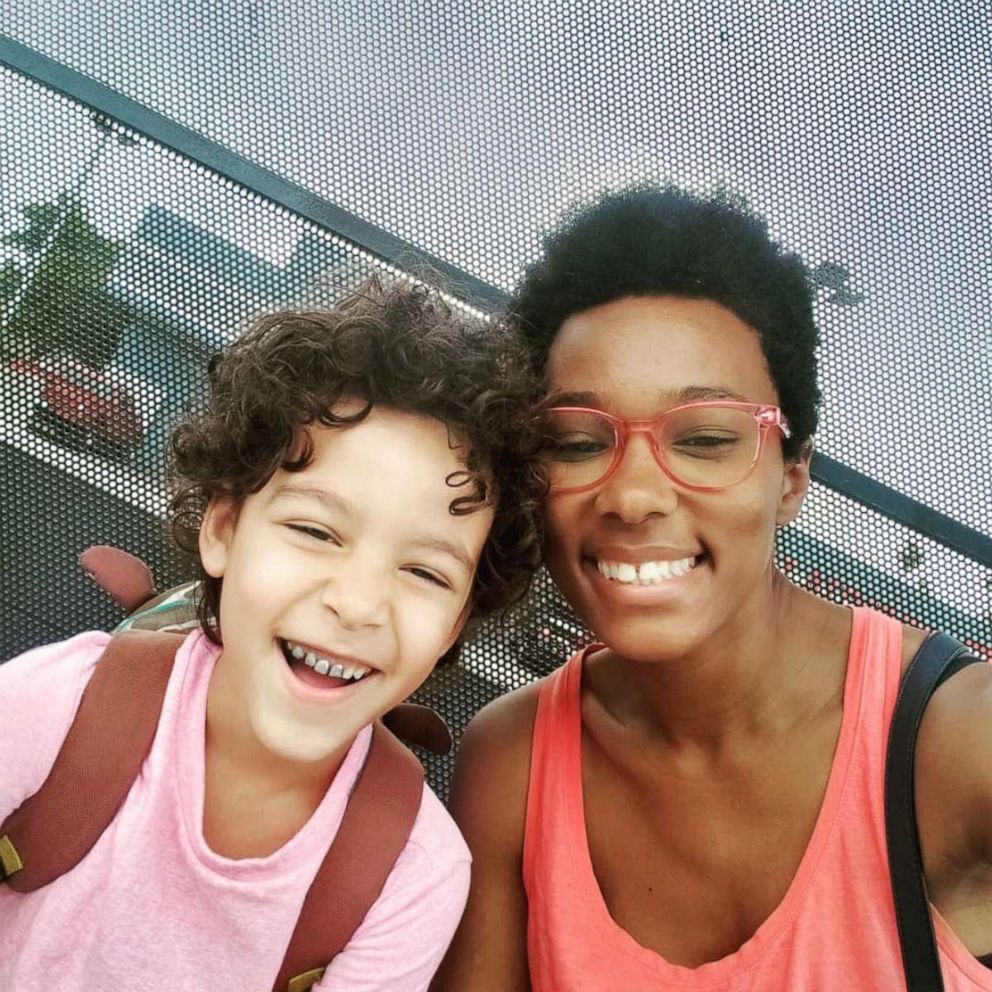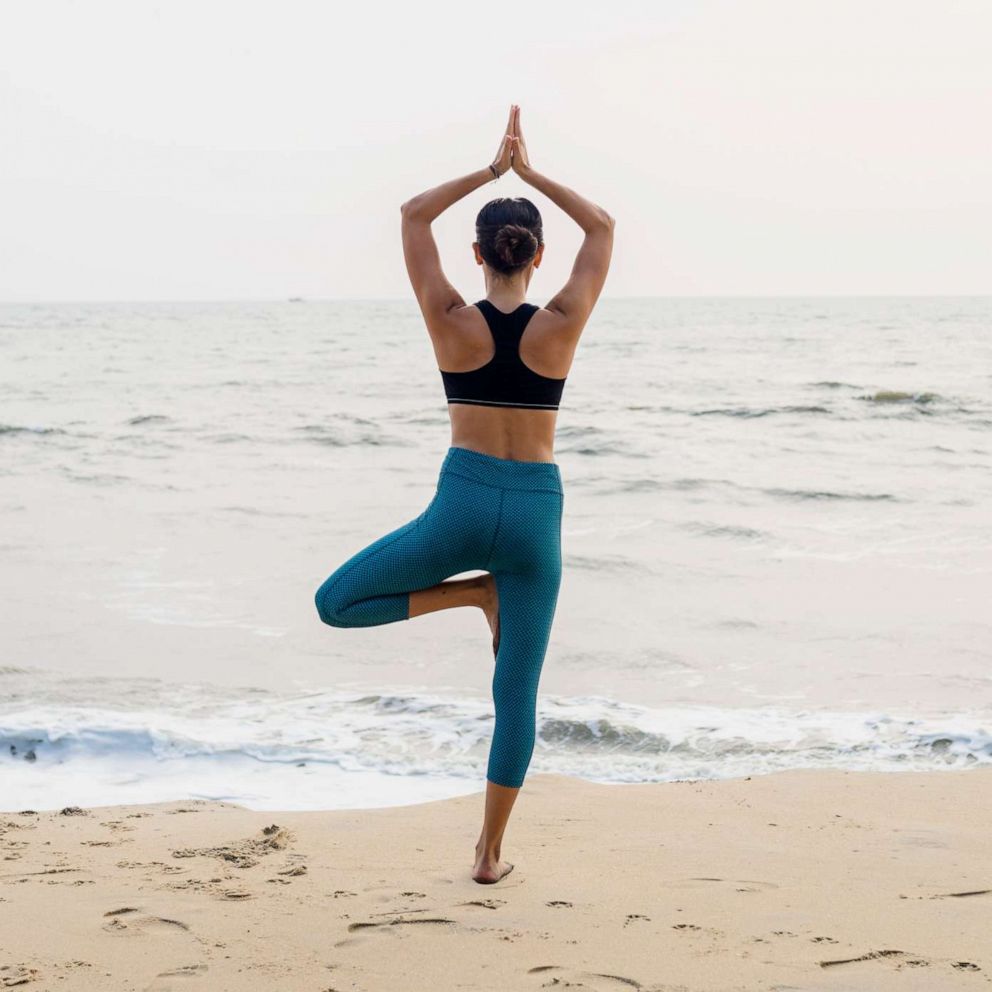Rachel Hollis on what women get wrong about self-care
The bestselling author and motivational speaker shares what women need to know.
Rachel Hollis is the bestselling author who has told women to live fully and to stop apologizing.
She is also founder and CCO of the Hollis Company, a mother of four and a motivational speaker who travels the country speaking to thousands of women each year.
In her conversations with women both online and in-person, Hollis said she sees women missing the point of self-care.
In this essay for "Good Morning America," Hollis breaks down what women need to know.
Self-care is the hot, new buzz word now, right? It’s all over magazines, there are multiple hashtags on social -- it’s something we know matters and so we set out to add it to the routine.
Unfortunately, I think it’s the thing that many women are getting wrong and the misunderstanding is making it worse.
Let’s start with what self-care is not.
Self-care is not hurtful, harmful or negative. I say this because so many people are overindulging, over-imbibing or overspending, all under the guise of “self-care.”
Dude.
Self-care will never hurt you
We need to get real. Self-care will never hurt you. In fact, if something does hurt you, make you weaker, make you sick or cause problems for you in the future it wasn’t self-care, it was self-sabotage. If you were truly taking care of yourself you wouldn’t drink alcohol to the point of sickness. If you were truly loving on yourself, you wouldn’t drive yourself deeper into debt.
If you were really focused on taking care of you, you wouldn’t hurt yourself with your choices. Taking care of yourself today should make tomorrow better, not worse.
So what is it actually?
It’s simple, intentional habits that allow you to live a healthier, happier, more joyful life. Maybe the first thing that runs through your mind is adding things to your life.
Most people imagine manicures, shopping, getting together with friends, or if you’ve got the funds … a spa day! There’s a time and a place for these things -- and I love them all! -- but, self-care is about daily care, not special-occasion care.
Self-care is about daily care, not special occasion care
Those special treats are incredible but you can’t run yourself into the ground all month long and expect one at-home pedicure to make you feel rested and refreshed. Instead ask yourself what intention and habits you can add to your daily routine that will make you feel more centered.
Also, since we’re here, let me holler at you real quick: taking care of yourself isn’t selfish! In fact, it positively impacts everyone around you.
Think of it like this: Imagine you are a glass vase and someone is pouring a pitcher of water into you. In that pitcher is everything good you could ever need: joy, love, peace, care, etc., and the supply of water in the pitcher is unlimited.
But as women, we tend to try and tip ourselves over so we can pour ourselves out for others.
We pour a little here on our children and a little there on our partner. We keep pouring ourselves out because we want to make sure that everyone is taken care of. It’s a beautiful idea, but what happens to a glass vase if it keeps tipping over? It crashes and breaks. However, if you stand tall and allow yourself to be filled up ... the water will rise up and eventually be so full that it overflows onto everyone around you.
So how can you ensure that you are taking care of yourself intentionally and regularly?
Schedule it! It doesn't need to be some extraordinary event. Find the small things that matter to you and make space for them.
The most important part is that it happens every single day
For me, the morning is sacred. It is my time that I take care of me. I wake up before the kids, drink my coffee, write in my journal, pray, set my intentions, work out and get focused for the day. The most important part is that it happens every single day.
Not when I can squeeze it in or on the odd weekend. Every. Single. Day.
Also, practice self-awareness as it pertains to you your emotions. Take note of what events, activities, food, etc., create positive and negative feelings for you.
Why is this important? Because if you’re aware of what’s triggering you or stressing you out or making you anxious, you can remove it from your life or have a plan for how to handle it if it can’t be removed. On the flip side, if you identify the things that make you feel joyful, peaceful, centered or any other positive emotion -- reach for those things!
One of the greatest forms of care I can imagine is setting up your life in a way that makes it possible for you to thrive.
If that’s our intention it forces us to ask ourselves what we need, more or less, so that we can be more loving and peaceful to ourselves.







